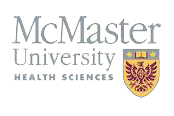1. The Big Five Personality Dimensions and Job Performance: A Meta-Analysis
Results show that conscientiousness shows consistent relations with all job performance for all occupational groups and the other personality dimensions correlations varied by occupational group and criterion type. Also both openness to experience and extraversion were valid predictors of the training proficiency criterion (across occupations)
2. Does Applicant Personality Influence Multiple Mini-Interview Performance and Medical School Acceptance Offers?
Extraversion was associated with MMI performance, whereas both extraversion and agreeableness were associated with acceptance offers. Adoption of the MMI may affect diversity in medical student personalities, with potential implications for students’ professional growth, specialty distribution, and patient care.
3. Emotional Intelligence in Medical Education: Measuring the Unmeasurable?
Emotional intelligence is not believed to be measurable.
4. From Behaviors to Attributions: Further Concerns Regarding the Evaluation of Professionalism
Suggests that educators should search for alternative approaches, including ones that do not relay on numerical scales, because professionalism does not easily reduce to numerical scales.
5. Pilot Study of the Roles of Personality, References, and Personal Statements in Relation to Performance over the Five Years of a Medical Degree
Students whole complete the personality questionnaire did not differ significantly from those who did not for age, sex, preclinical, BMedSci, and clinical performance, and whether or not they obtained honours. For the univariate analyses, more information in the personal statement was predictive of 33% of the assessments and specifically better clinical performance (theme D, junior surgery, senior surgery, obstetrics and gynaecology, ophthalmology, and dermatology). Higher scores on conscientiousness were significantly related to better performance across most (78%) of the assessments. Students scoring higher on agreeableness performed better on 33% of the assessments. Those scoring higher on emotional stability or lower on surgency performed better on 17% of the assessments. Finally, the amount of information in the reference and scores on intellect were both correlated with 0.055% of the assessments (chance level). For the multivariate analyses, the addition of personality scores significantly improved the fit of the regression models and conscientiousness was the only personality variable that showed a consistent pattern of significant effects across all three general assessments.
